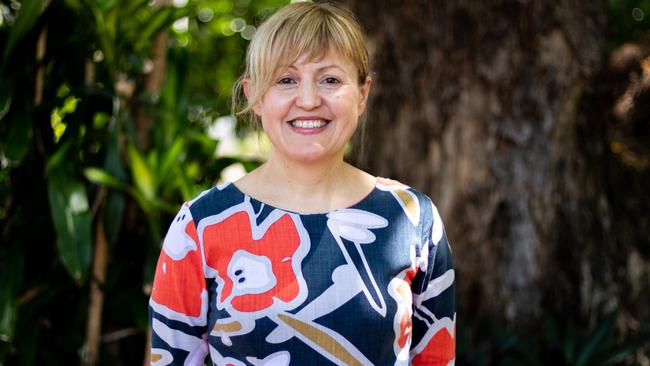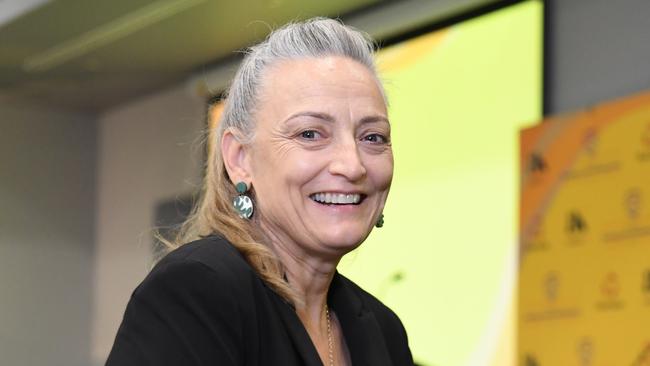Katherine Women’s Legal Service, NTCOSS weigh in on national DV plan
Territory domestic violence advocates have weighed in on the country’s new national action plan. See the shocking extent of violence against women and children it revealed.
Northern Territory
Don't miss out on the headlines from Northern Territory. Followed categories will be added to My News.
An ambitious national plan to end gender based violence has been welcomed by Northern Territory advocates.
But a remote legal service has said it is a “missed opportunity”, and more clear guidelines of how implementation will be funded is needed.
Katherine Women’s Information and Legal Service Incorporated, whose clientele include 84 per cent of people with an experience of family or domestic violence, said the issue of DV in community is only growing.
“We are seeing increasing need – by September this year KWILS had received a 63 per cent increase in referrals from police on last years total,” principal legal officer Ruth Storer said.
“We welcome the government’s consideration and focus on the lived experience of victim-survivors … (but we) ask for the government to set out what the plan means in practical terms.”
The plan is set to be implemented across two five-year blocks, with objectives focusing on prevention, early intervention, response and recovering and healing.
The Northern Territory has the highest rates of domestic violence in the country.
According to the latest figures from the Australian Bureau of Statistics show that in 2021, almost two-thirds (63 per cent) of assaults in the NT were DV-related.
An additional $10.7m in federal funding for domestic violence programs was brought forward in August, at the request of the Territory government.
Ms Storer said while the plan was a great start, some aspects were missing.
“This is a missed opportunity for intervention and socio-legal supports, as well as extremely traumatic for women who have already experienced extensive trauma,” she said.
“Real and long term funding commitments for the NT, that recognise a needs-based (not population-based) approach and the very significant need for services and expense of service delivery in the NT.”
‘Important step’: NTCOSS looking forward to Territory-specific plan
Northern Territory Council of Social Services chief executive Deborah Di Natale said there were many aspects of the plan that were encouraging to Territorians in particular.
“The issue of ending violence against women is something where Territorians and Australians are rightly demanding action,” she said.
“Territorians face the highest rates of domestic, family and sexual violence in the country and in very remote Aboriginal towns there are no services at all, putting women at greater risk.”

She said the focus on First Nations and victim survivors was an important part of the plan.
“We support the commitment for a stand-alone First Nations National Plan to target violence against Aboriginal and Torres Strait Islander women and children, halve family violence and abuse by 2021 and provide the infrastructure and prevention models that work.”
“We also welcome the voices of victim-survivors, prevention and the important role of working with men and boys in relation to respectful relationships receiving a greater emphasis in the new plan.”
Ms Di Natale said it was important the goals came with sufficient funding to get the job done.
“If we are to achieve any progress, let alone meet that target, there must be funding and resourcing commitments attached to its implementation, which is unfortunately very unclear at the moment,” she said.
“Here in the NT there must be a needs-based funding model not one based on population size as currently occurs.”
First Nations put first in stand-alone plan
Domestic, Family and Sexual Violence Minister Kate Worden said the announcement of the plan marked an exciting step for the community.
“The National Plan bolsters and supports our commitment to curb the horrible scourge domestic, family and sexual violence presents here in the Northern Territory, with a unified approach from the Federal Government,” she said.
“Given the magnitude of the problem here in the Northern Territory, the National Plan to End Violence Against Women and Children is especially significant as it will have a stand-alone Aboriginal and Torres Strait Islander Action Plan.

“This stand-alone Plan, driven by Aboriginal and Torres Strait Islander key stakeholders, will address domestic, family and sexual violence, using culturally appropriate and trauma-informed methodologies.”
Domestic violence affects indigenous women disproportionately more than non-indigenous women.
According to the plan, they are 34 times more likely to be hospitalised as a result of violent and report three times as many incidents of sexual violence.
The plan sets out a need for a separate approach for First Nations Australians, with the aim to reduce violence against Aboriginal and Torres Strait Islander women and girls by 50 per cent by 2031.
“A deliverable under this National Plan is a dedicated action plan for Aboriginal and Torres Strait Islander family safety, which will provide the foundations for the future stand-alone First Nations National Plan,” the document states.
Australian Femicide Watch data shows 18 women and children from the NT have been lost to unlawful acts since 2017.
The women and children killed in 2022 include a 30-year-old mother and her 14-week-old baby who were shot to death by a male relative at an outstation near Alice Springs on July 17, 2022; and a 33-year-old woman was killed at the Rockhole Community outside of Katherine, Northern Territory.
A female relative has been charged with violent conduct causing death.



